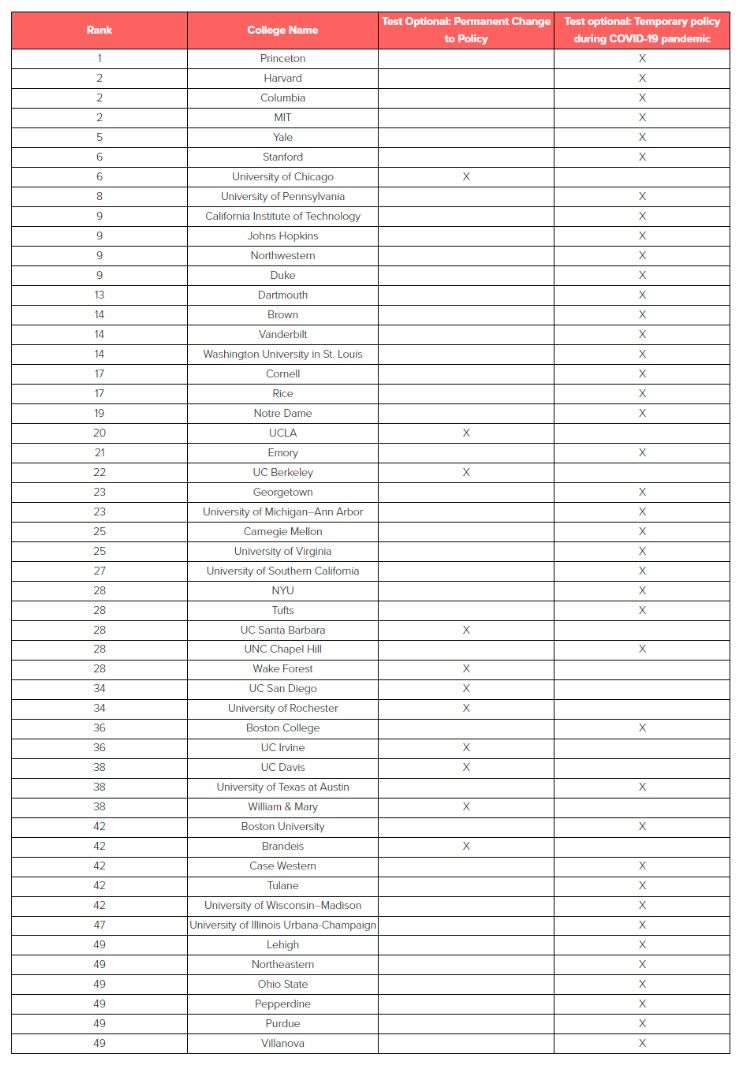
Takeaways for international students: DON’T stop preparing for the SAT The purpose of test-optional admissions is to encourage a holistic assessment of applicants. However, international students are still strongly encouraged to prepare and take the SAT if possible. The reason is that many top US colleges do not accept grades from certain international schools, especially if they don’t follow an established US curriculum such as the Common Core standards. Even if they do, it is almost always advisable for international students to take the SAT, regardless of whether the college is test-optional. This is true even if the student has great grades, demonstrates leadership in extracurricular activities, and is intellectually curious. Submitting a great SAT score along with evidence of these attributes is just another way to demonstrate the student’s excellence and will therefore only improve their chances of acceptance. Parents of these students should therefore do their best to encourage their children to study and prepare for the SAT. In the case where the student does all they can to prepare and still gets an underwhelming SAT score compared to her grades, then the parents should consult with an academic counselor and find a college that will accept their school’s grades without an SAT score.
Conclusion The US educational system is moving away from standardized testing as a prerequisite for college admission. However, just because some colleges are now “test-optional”, this does not mean that international students should stop preparing for and taking the SAT. International students must accept that some US colleges will not recognize their school grades as sufficient evidence of their achievements, and even if they do, an exceptional SAT score along with stellar grades is always going to give a student a better chance of demonstrating their excellence than good grades alone. In the unlikely case that a student performs well at school but struggles with the SAT, parents can consider finding a college that is test optional (and which also recognizes their child’s academic history) and omitting their SAT scores. In either case, students in their final years of high school should be preparing for the SAT as soon as possible to maximize their potential score, thereby improving their college entrance options.


